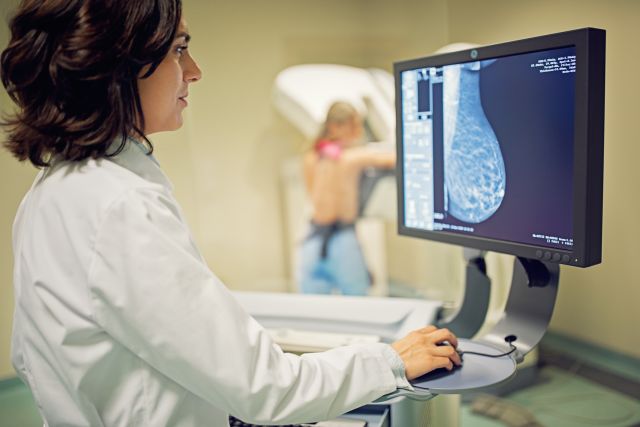Generally speaking, the earlier a cancer is diagnosed, the better the treatment outcome. The earlier a person and their healthcare team is able to act on a cancer, the less time that cancer has to grow and spread. Tests that screen for cancer are one of the most useful tools for detecting cancer as early as possible.
What is cancer screening?
Cancer screening looks for signs of cancer in patients that do not have any symptoms. Different cancer screening tests are recommended at different ages or when a person has certain risk factors (such as a family history of cancer or a history of smoking). The goal of cancer screening is to detect cancer as early as possible.
What tests are used to screen for cancer?
There are various tests used to screen for different types of cancer. The choice of screening test often depends on the type of cancer being screened for, the individual's risk factors, and the recommendations of healthcare organizations. Commonly used cancer screening tests include:
- Mammography (Mammogram). Used to screen for breast cancer. It involves X-ray imaging of the breast tissue to detect abnormalities.
- Pap Smear (Pap Test). Used to screen for cervical cancer. This test involves collecting cells from the cervix to check for any precancerous or cancerous changes.
- Colonoscopy. A procedure used to screen for colorectal cancer. A flexible tube with a camera is inserted into the colon to look for polyps or other abnormalities.
- Fecal Occult Blood Test (FOBT). This test checks for hidden blood in the stool, which can be a sign of colorectal cancer or other gastrointestinal issues.
- Prostate-Specific Antigen (PSA) Test. Used to screen for prostate cancer. It measures the levels of PSA, a protein produced by the prostate gland.
- Low-Dose Computed Tomography (LDCT). This is used for lung cancer screening in individuals at high risk, such as people who have a history of smoking. It involves a series of X-rays to create detailed images of the lungs.
- Skin Examination. Dermatologists may perform routine skin checks to identify any suspicious moles or growths that could indicate skin cancer.
- Ovarian Cancer Screening. Currently, there isn't a highly effective general screening test for ovarian cancer. Some tests like the CA-125 blood test and transvaginal ultrasound might be used in specific cases.
- Genetic Testing. In some cases, individuals with a family history of certain cancers may undergo genetic testing to identify genetic mutations that increase the risk of cancer, such as BRCA mutations for breast and ovarian cancer.
Are there new cancer screening tests being developed?
Multi-Cancer Early Detection (MCED) tests, also called Multi-Cancer Detection (MCD) tests, are under development. These tests can screen for many different types of cancer using a single sample of blood. These tests work by looking for biological markers that may indicate there is cancer in the body, such as antibodies, specific proteins, DNA fragments, or changes in DNA. These tests are not yet available, but they may play a useful role in screening for cancer in the future.
What screening tests do I need?
Not everyone needs to undergo every screening test. The timing and frequency of screenings can vary based on age, biological sex, personal medical history, and family history of cancer. Every person should work with their healthcare provider to determine what screenings they need.
Here are a few questions that can help when discussing different screening tests with a healthcare provider:
- Why is this screening recommended?
- What does this screening look for?
- What happens during the screening?
- Are there any potential risks or side effects associated with this test?
- What do I need to do to prepare for the test?
- How long will test results take and how will I get my test results?
- What do I do if I have questions about the test results?
- If the test results are not normal, what happens next?
Remember, a healthcare provider will be your best source of information.







